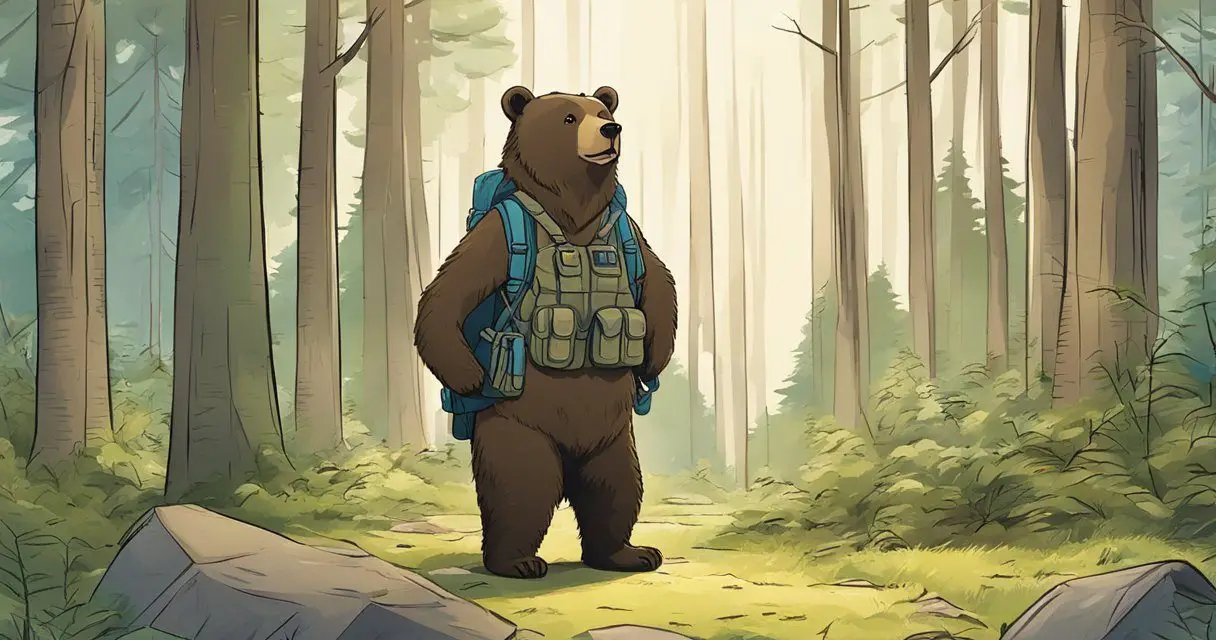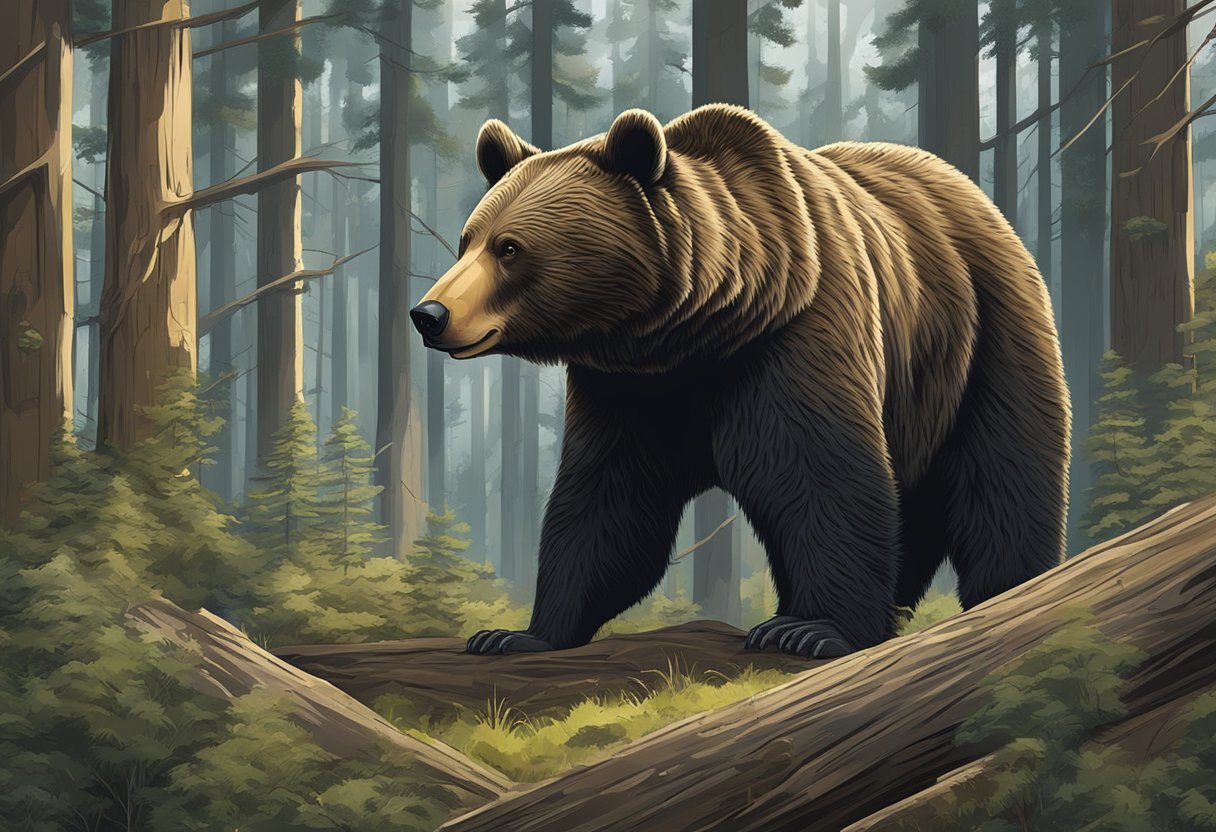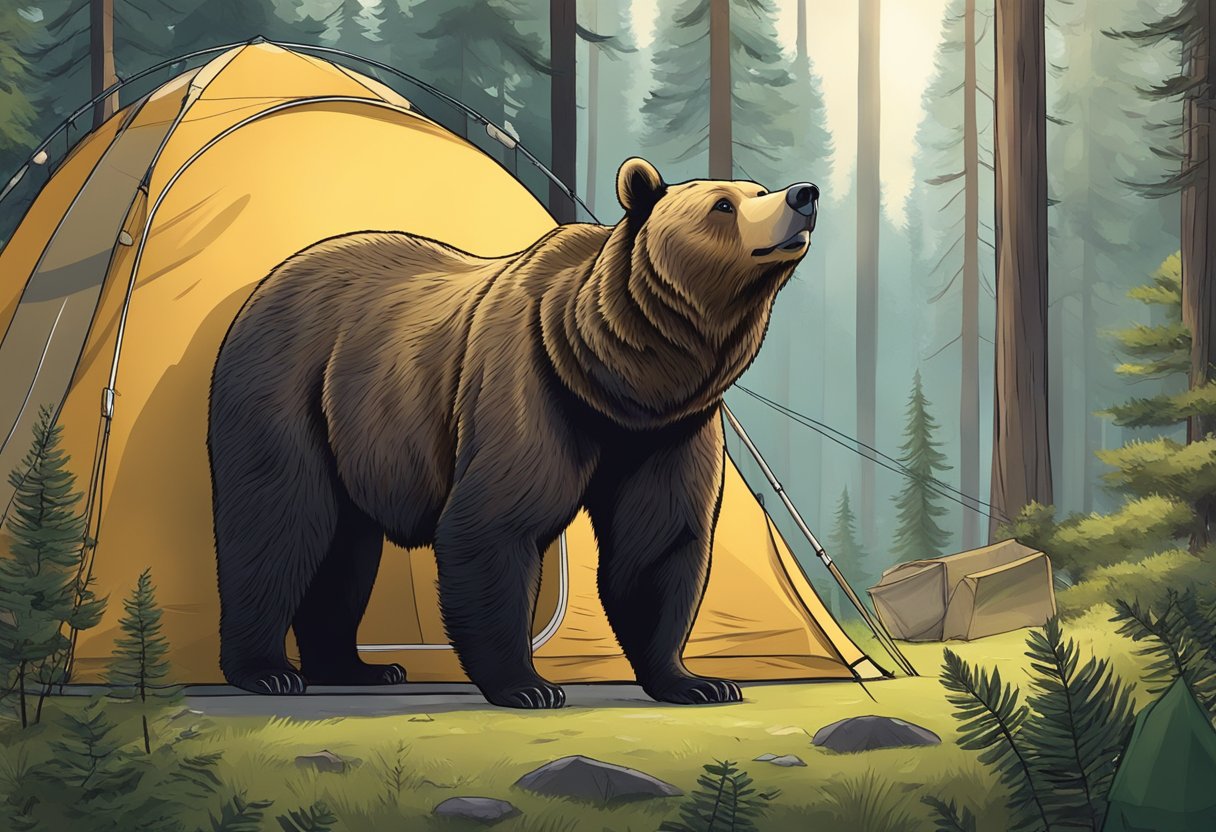Spending time outdoors is a great way to relax, but sometimes nature brings surprises—like running into a bear while you’re camping. It might feel scary at first, but being prepared can make a big difference.
Knowing what to do if you encounter a bear during camping helps you stay safe and calm in a tough situation. With the right steps, you can protect yourself and enjoy your time in the wild with more confidence.
1) Make loud noises like shouting or banging metal to alert the bear to your presence.
Would you like to save this article?
If you spot a bear near your campsite, don’t stay quiet. Make loud noises by shouting, clapping, or banging metal objects together. This lets the bear know you are there and helps it realize you’re not easy prey.
Bears often avoid people when they hear them. You don’t want to surprise a bear, especially if it didn’t notice you right away. Loud noises can give the bear a chance to leave on its own.
Use a pot and spoon or bang on a metal water bottle if you have one nearby. Sometimes, just your voice is enough, but louder noises can help if the bear seems curious or doesn’t move away.
Don’t run or scream in a panic. Focus on being firm and loud without sounding scared. Keep an eye on the bear as you make noise, but try not to turn your back or get too close.
2) Act Large
If you come face-to-face with a bear, your goal is to convince it that you’re not an easy snack.
First, stand tall—spread your arms, open your jacket, or hold a backpack above your head to look bigger.
Acting large works to scare away bears (especially black bears) because it taps into their natural instincts. Here’s why:
1. Bears Prefer Easy Meals
Most bears don’t want a fight—they’d rather avoid risk. By making yourself look big and loud, you signal that you’re not defenseless prey. A bear might bluff-charge, but if you stand your ground confidently, it often decides you’re more trouble than you’re worth.
2. Dominance Display = “Back Off”
In the animal world, size = dominance. Spreading your arms, raising your jacket, or standing on a rock makes you appear larger and more threatening. A startled bear may interpret this as, “This weird upright creature might be dangerous—better retreat.”
3. Avoids Triggering the Chase Instinct
Running triggers a bear’s predatory response (like a dog chasing a squirrel). Staying tall and backing away slowly doesn’t activate that instinct. Black bears, in particular, are more likely to flee if they think you’re a threat.
Exception: Grizzly Bears
With grizzlies, playing dead is often better if they attack (they’re more territorial than predatory). But in initial encounters, acting big can still deter a charge—unless it’s a mama with cubs, in which case, slowly retreat no matter what.
3) Do not run as it may trigger the bear’s chase instinct.
If you see a bear while camping, stay calm. Running can make things worse. Bears have a natural chase instinct, and sudden movements may cause them to follow you.
Instead of running, stand still and face the bear. Try to look as large as you can without making quick moves. Speak in a calm and firm voice to let the bear know you are human.
Most of the time, black bears are not looking to attack you. If you don’t act like prey, they often lose interest. Give the bear space to leave on its own.
Running can make even a calm bear curious or excited. Remember, you cannot outrun a bear, so it’s safer to stay where you are. Staying calm helps keep you safe and lets the bear move away.
4) Pick up small children to prevent them from running or panicking.
If you see a bear when camping, your first thought might be to protect your kids. It’s important to pick up small children right away.
Children might scream or try to run, which can make a bear more curious or even startled. Bears might react if they see quick movements or hear loud noises.
Holding your kids keeps them calm and close to you. It stops them from doing anything that could look like prey behavior to a bear.
You should also gather everyone together and stay as quiet as you can. Talk in a calm voice and don’t panic.
By keeping your children safe and steady, you lower the risk of the situation getting out of control.
5) Keep bear spray ready and know how to use it if the bear approaches.
Always have your bear spray close by when you’re camping in bear country. Don’t leave it buried in your backpack or inside your tent where you can’t reach it fast. Keep it somewhere handy, like on your belt or in a side pocket.
If you see a bear coming closer, stay calm. Hold the bear spray with both hands to keep it steady. Take off the safety clip so it’s ready to use.
Aim the nozzle slightly downward and at the bear’s face, especially if the bear is charging. Spray a short burst of 2 to 3 seconds. The goal is to create a cloud of spray between you and the bear, hitting its eyes and nose.
Never spray bear spray inside your tent or on your gear. It doesn’t work like bug spray and can even attract bears before it’s used. Save it for real encounters.
You should practice how to use bear spray before you need it. Knowing what to do will make you quicker and safer if you ever actually need it.











